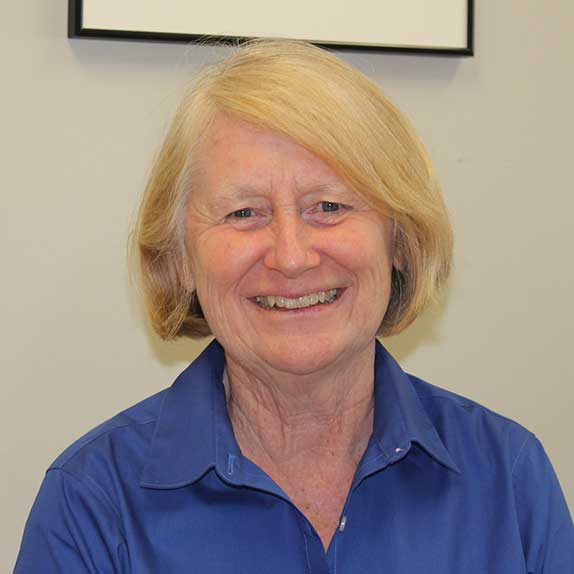At Regis, we give you more pathways to pursue your goals in health care administration. As a dedicated leader in health administration education, we welcome ambition-driven, self-motivated professionals like you from all health care settings. With our Master of Health Administration program, you’ll be equipped with the tools to build expert-level health care, business, and policy skills. You’ll then filter them through your personal experience to create a management style that’s effective across the health care landscape — and one that’s all your own.
Why Earn Your Master’s Degree in Health Administration?
Higher standards for health care leadership and management are required in today’s environment. With industry-altering health laws and regulations, changing health care economics, greater use of technology, and new models of delivery, tomorrow’s health care leaders must be prepared to tackle multiple challenges in health administration.
Admission into the Master of Health Administration (MHA) program* requires candidates to possess a bachelor’s degree from a regionally accredited institution. We accept students from all educational and professional backgrounds.
Note: The degree conferred to students in this program will be a Master of Science in Health Administration (MSHA)
Why Earn Your MHA at Regis?
Reputation for Academic Excellence
Regis College is a leader in health care education and fully accredited by the New England Commission of Higher Education.
Health Care Expertise
Our courses are taught by active health administration professionals who have an insider’s perspective on the leadership and management competencies the field demands, and we design our curriculum to build those skills. Unlike many health care administration graduate programs, our curriculum also gives you an in-depth view of the political and policy context in which health care services are paid for and delivered.
Dedication to Social Justice
Our commitment to social justice and lifelong learning isn’t summed up in one lecture, it’s woven into each course. Our MHA degree is designed to help you make lasting change in health care by leading and managing organizations to increase access to high-quality health care for all people.
Supportive Environment
We’re here to support you. By offering our distinguished Master of Health Administration online with several degrees of student support and no GRE requirements, we’re opening the door for health care professionals to tackle the growing complexities of the industry, assume more responsibility, and increase their autonomy and leadership in the field.
How Will You Rise at Regis?
-
What Can You Do with Your Master’s Degree in Health Administration?
Graduates of our Master of Health Administration program emerge with the skills and expertise to pursue leadership roles in a range of settings. Through coursework that advances your knowledge of key concepts like health ethics, health information systems, and financial analysis, our MHA degree can open up career opportunities in the public and private sector at government agencies, clinics, insurance companies, and hospitals, just to name a few.
-
Where Can You Work with an MHA?
Health care administration graduates work wherever health care is delivered or administered.
Where MHA graduates work:
- Hospitals
- Nursing and residential long-term care facilities
- Primary care and specialty care practices
- Ambulatory and outpatient care
- Insurance companies and government agencies
- Home health services
- Public health programs and agencies
Source: U.S. Bureau of Labor Statistics
-
Master of Health Administration Careers
Hospital CEO
$155,700 1Chief Nursing Officer
$138,600 1Pharmaceutical Quality Assurance Director
$167,000 1Medical Marketing Manager
$69,800 1Hospital Media Relations Specialist
$56,400 1Health Information Manager
$61,900 1Hospital Administrator
$90,700 1Assisted Living Administrator
$62,300 1Health Care Consultant
$82,500 1Health Policy Analyst
$66,500 1Health Informatics Specialist
$69,500 1 -
What Is the Typical MHA Salary?
While factors such as the type of role, local market demand, and experience can all influence salary expectations for MHA graduates, compensation in this field is generally competitive. Payscale reported a median annual salary of $85,000 in March 2025 for individuals with a Master of Health Administration. Certain roles may command even higher salaries, however. For example, medical and health services managers earned a median salary of $117,960 in 2024, according to the U.S. Bureau of Labor Statistics (BLS).
-
MHA Job Outlook
29%
The projected growth of jobs for medical and health service managers from 2023 to 2033
562,700
The number of health service managers working in health care at the state, local, and private levels in 2023
160,600
The projected increase in MHA-related jobs from 2023 to 2033
As reported by the Bureau of Labor Statistics.
-
Frequently Asked Questions About Regis' MSHA Program
What can I do with a master’s degree in health administration?
Health administration is a diverse field with plenty of career options. Our program prepares graduates for management and executive roles in a variety of settings in the public and private sector, including at hospitals, health systems, clinics, pharmaceutical companies, and government agencies.
What is the average salary for graduates of a Master of Health Administration program?
According to Payscale data from 2025, individuals with an MHA earned a median salary of $85,000. However, individual salaries vary widely depending on factors such as the type of role, local market demand, and experience.
How is the Master of Health Administration program accredited?
Regis College holds regional accreditation from the New England Commission of Higher Education.
How long is the Master of Health Administration program?
Students enrolled in the master’s degree in health administration program can complete the required coursework in as few as 24 months.

